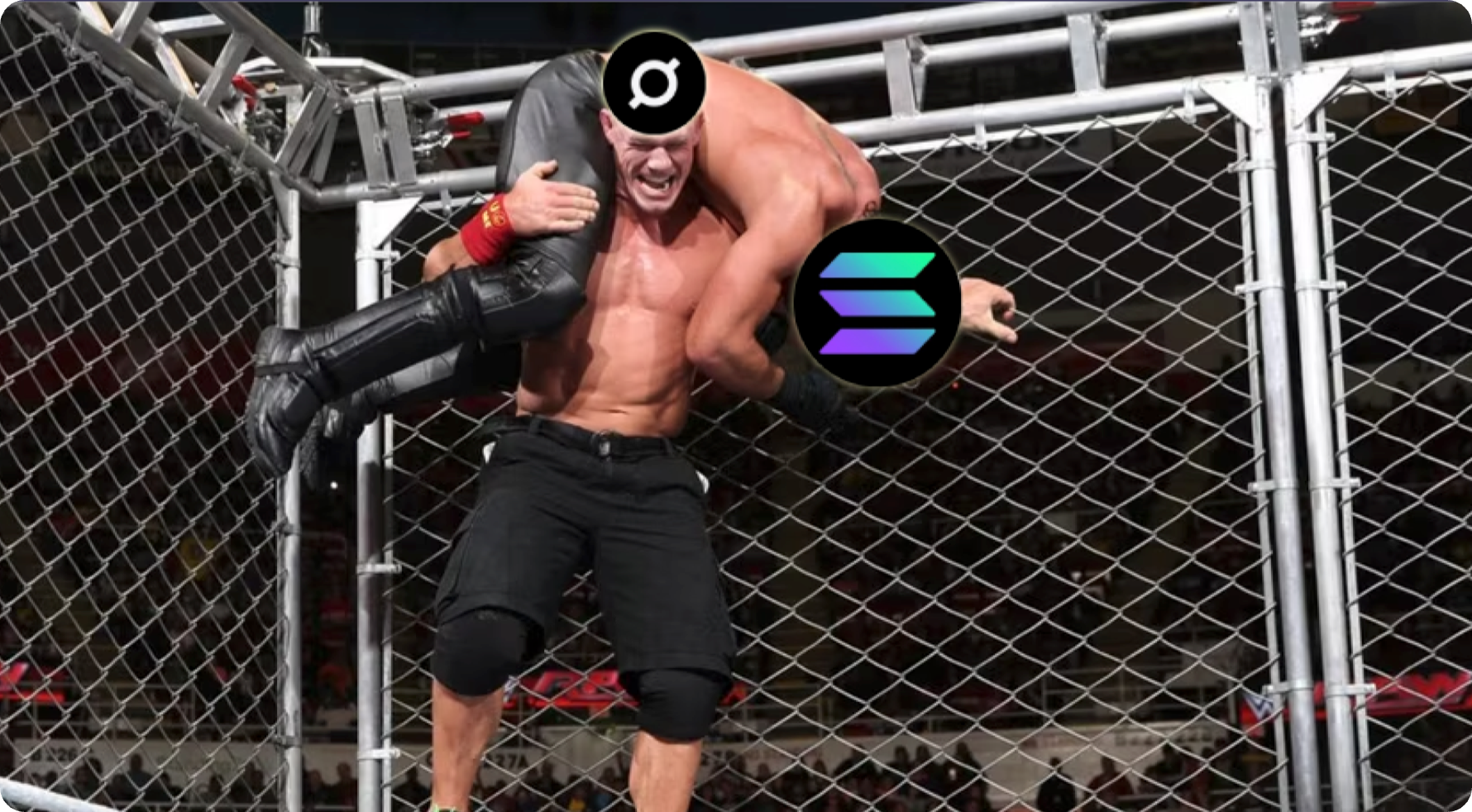Solana Gets Slammed

Transaction Turmoil. Solana’s staunchest defenders have long maintained failed transactions only afflict bots, but the chain has become practically unusable for regular users in recent days! Why can’t you land transactions on Solana, and how does the chain improve from here?
ORE is a mineable token that deployed to Solana on April 2, offering those who deposit SOL into a miner smart contract the chance to share in the 1 ORE of protocol rewards distributed per minute by correctly solving cryptographic puzzles, similar to how proof-of-work operates.
Since yesterday afternoon, ORE miners have been creating approximately 1M transactions per hour, massively increasing congestion for Solana, a chain that only has the capacity to process about 30M non-voting transactions per day!
Charts showing an uptick in percentage of failed non-voting Solana transactions are making the rounds on Crypto Twitter, but they fail to encapsulate the gravity of this problem, as this statistic only includes transactions that hit the chain, meanwhile the majority of users transactions are being dropped prior to ever making it onchain.
Under Solana’s current fee paradigm, the cost to spam the network is effectively 0, as there is no meaningful base fee for transactions; ORE mining has monetized spam, giving users a reason to fund smart contracts that fire off tens of thousands of transactions in the hopes that just one will land.
Fun fact: 1 out of ~25k $ORE transactions landed last night for me on Solana Mainnet Beta™
— Joe | 0xOsprey.eth (@0x_Osprey) April 5, 2024
The increased amounts of spam have led to more transactions getting dropped, as the block leader ordering transactions can only open so many connections at once.
With bots being more effective at producing spam, real human users are disproportionately bearing the brunt of the consequences, often finding themselves unable to transact on the network no matter how high they raise their gas fee.
rough TL;DR of what's happening:
— mert | helius.dev (@0xMert_) April 4, 2024
- the networking stack (QUIC) on Solana is implemented poorly and does not handle spam well
- if everyone spams, a lot of connections get dropped since a block leader can only handle so many connections at once
- bots spam better than humans,…
While many within the Solana ecosystem contend that there is “no silver bullet” to address the increasing frequency of dropped transactions, instead hoping that continued technical fixes to address networking issues fixes will yield an improvement, others point to an economic solution with a proven track record as an obvious remedy!
Ethereum’s EIP-1559 upgrade introduced a dynamic mechanism that adjusts the base gas fee paid by users depending on the variable demand for blockspace. Implementation of a similar mechanism in Solana would necessitate that spammers pay at least the base fee to send transactions, increasing the costs to do so and decreasing the amount of spam on the network.
Solana will let 80% of transactions fail instead of implementing a basefee
— DavidHoffman.eth/acc🦇🔊 (@TrustlessState) April 5, 2024
Guys just accept fees. It’s a good mechanism.